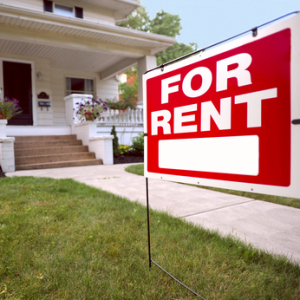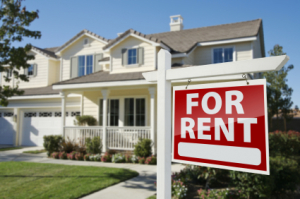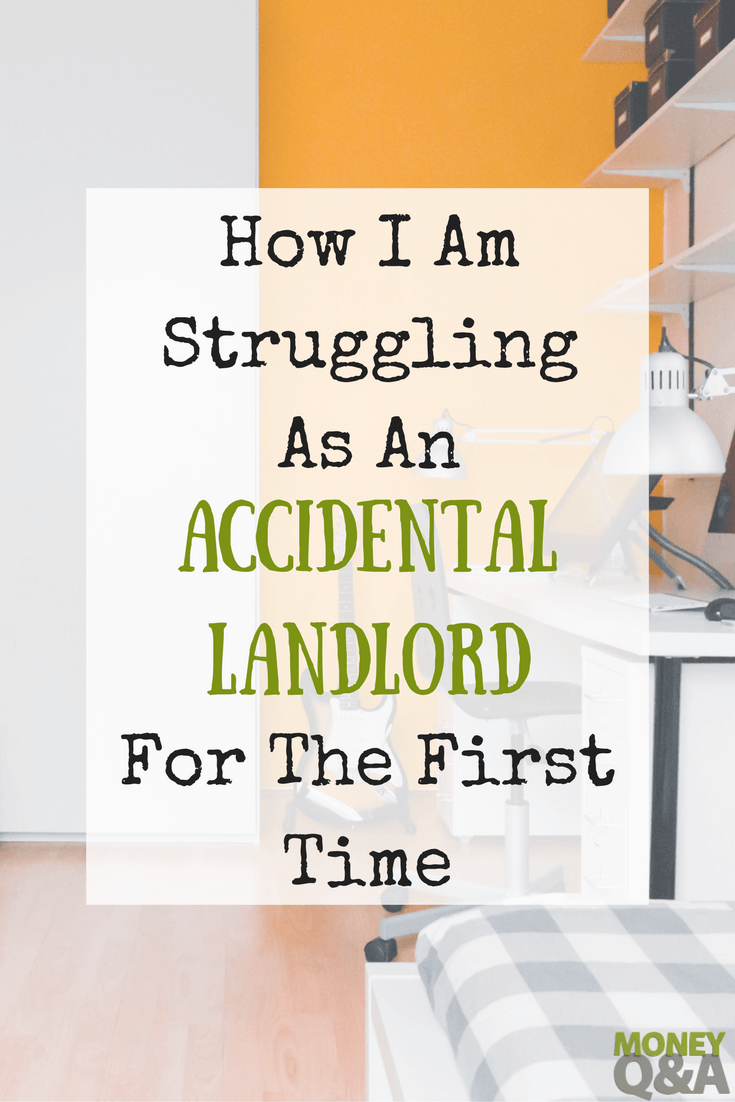
I thought it would be a simple endeavor to charge enough rent in order to cover our mortgage payment each month. But that was hardly the case when the rubber met the road. There were several important factors I neglected to take into consideration that hampered my return. I was struggling just to break even.
With a mortgage payment of $1,400 a month, there are many things that took a bite out of my renter’s payment. Forget making a profit; I was struggling just to break even.
Nickeled and Dimed by the Little Things
Because I now live several states away from my home, I had to hire a property manager to manage the house, advertise, screen and find tenants for me. Most property management firms charge a fee equal to 10 percent of the monthly rent. So, for example, charging $1,500 in rent costs me $150 each month for the property manager. If I charged that amount in rent, I’d already been taking a loss on my mortgage.
Of course, it hasn’t been all sweetness and light. After about a year as a landlord, I’ve already encountered maintenance and vacancy issues when my first tenants moved out. Most first-time landlords, myself included, fail to include enough money as a cushion to ride out the hiccups. I failed at first to include maintenance costs and the vacancy factor into the rent equation.
Maintenance Costs and Vacancies Can Compound the Problem
To help prevent my monthly maintenance costs from skyrocketing, I decided to purchase a home warranty, which cost me another $40 a month. Of course, I hadn’t factored that into the rent my tenants paid. Last summer,
I also had to file a claim against my home warranty for a $600 air conditioner part that wasn’t covered.
Many experts recommend including a vacancy factor of at least 10 percent in the amount of rent charged. So, in my case, I could expect at least 30 to 60 days of vacancy every time I had to find a new tenant. To help protect my costs and build a buffer fund, I needed to charge at least 8 percent to 10 percent more in rent or else I wouldn’t be able to cover my monthly mortgage payment.
Rent: A Game of Supply and Demand
Our first tenants moved out after a year, and we simply relisted the house at the same price. But we failed to take into account that comparable rents in our neighborhood had declined. It was a renters market.
Three months and two rent price decreases later, my wife and I finally found a new tenant. But the new tenants were paying almost 15 percent to 20 percent less than the previous ones. The fact that we were barely breaking even before pushed our personal profit and loss statement to the breaking point. We definitely weren’t breaking even now with all the added costs and the decreased rent.
As landlords, we no longer had any pricing power on our rent. To make matters worse, we missed the refinancing window to lower our monthly mortgage payments. So if you’re ever thinking about becoming an accidental landlord, it’s best to refinance your home while you’re still living in it. Or you have to have at least a 20 percent equity stake in it because the bank now considers it an investment property if you don’t live there.
To say that my wife and I learned the hard way about being landlords is an understatement. For more than a year now, we’ve routinely had a negative monthly cash flow of over $150 on our rental income. It’s not enough to cover our mortgage payments. We’ve basically been subsidizing our tenants’ rent each month.
I guess it’s true what they say about major purchases: The way to make the most money isn’t when you sell the property. The profit comes when you save money making the purchase. The same was true for us. Because we didn’t refinance or seriously consider all the costs of becoming a landlord, we pay for it every month. It’s a death by a thousand cuts.
Insurance You Need as an Accidental Landlord

Homeowner vs. Landlord Insurance
When you are a homeowner, you get a homeowners insurance policy. This policy covers the entire structure of your home, your home’s contents, and provides some level of liability protection for you and your family. When you become a landlord, you don’t need some of that protection. As such, you get what is known as a fire policy.
A fire policy is designed specifically for landlords. It is coined from the idea that you are protecting your home from just fire. But, really it means that you are just protecting the structure of the home. As a landlord, you do not insure the contents of the home. That is your renter’s responsibility to provide coverage for his or her items with renter’s insurance.
Additional Insurance Protections For Landlords
As a landlord, you do potentially open yourself up to additional liability. Since you do have other individuals living in a property you own, you could potentially find yourself involved in litigation simply as the homeowner. As a result, you should consider increasing the amount of personal liability coverage you have in case you need to protect yourself. I am a big fan of purchasing umbrella insurance to protect homeowners from increased liability.
Many landlords purchase an umbrella insurance policy to cover themselves should any liability issues arise. If you are not protected, you may be forced to sell assets to pay any judgments or settlements including the house you rent.
Investing in Real Estate with Roofstock
Roofstock
Single-family rentals are a stable asset class with considerably less volatility than stocks. Single-family rentals prices have remained almost perfectly uncorrelated with stock prices since 1971, with a correlation coefficient of only 0.07.
Their online marketplace empowers everyday investors to own cash-flowing income properties and build wealth through real estate. Roofstock makes it easy to invest remotely. Over 60% of their customers are buying rental property located more than 1,000 miles away. With their market analysis, Roofstock provides research and data analysis to help you determine which locations meet your investing objectives.
Roofstock’s marketplace offers rental homes for sale in 40 markets and 21 states nationwide, and they are continuing to expand. Roofstock surpassed $1 billion of collective transaction volume within two years of its marketplace launch, making it one of the fastest-growing FinTech startups of all time.
And, their industry-leading Roofstock Guarantee empowers investors to buy remotely with total confidence. Their certified properties are inspected and come with a 30-Day, Money-Back Guarantee, so you can invest remotely with confidence.
There are many reasons for becoming an accidental landlord. You may be forced to keep your home instead of selling because your house is underwater, you have equity but don’t want to lose it, you cannot get a short sale, or maybe they don’t want to hurt your credit, or maybe you can just afford to sell and pay the closing costs.
Some people are taking advantage of the low real estate prices to buy another home and are simply renting out their first home until the real estate market improves. Whatever the case may be, when you become a landlord, your insurance needs change dramatically.
Have you ever tried your hand at being a landlord? Were you surprised at how many little costs ate away at your profit margin each month?
Note: Portions of this article originally appeared on AOL Daily Finance and is reprinted with permission.


I was also an accidental landlord for about ten years. I bought a condo during a real estate boom cycle. When the time came to upgrade to a house I owed more on the mortgage than the unit was worth.
The rent did not cover my monthly expenses either. However we were able to deduct depreciation on the unit as a business expense, along with other maintenance and management fees. We showed a loss on the property every year, reducing our tax bill.
The unit was eventually sold for a little more than was owed on the mortgage.
Sorry to hear you’re in this pickle. Unfortunately, I don’t have any good answers for you. You can only charge what the market will bear. How much of a loss would you take if you sell the house? It may be better to just take a single large loss than the current death by a thousand cuts. Perhaps you could work out a short sale with no recourse with the bank and a possible buyer.
What about the part of the mortgage payment that is principal? Unless the home is going down in value, or you have an interest only loan, you are gaining equity by paying down principal and hopefully some appreciation in the property. Not to mention the real estate loss the other commentors mentioned. If your income is too high to take a taxable loss on residential rental real estate, you’ll get the accumulated loss the year you dispose of the property.
*raises hand* count me in the accidental landlord club. We have only been at it for nine months, but so far so good. We rent to my brother-in-law and his family, and my father (lives 20 minutes away) is a very handy man that will do any small maintenance project.
We’re able to build a small slush fund of $175/month, but it’s helping cushion any unexpected expenses. Hopefully it keeps going well, and only costs me a bottle of wine every once and awhile to my Dad 🙂
Remember to never confuse an “Accidental Landlord” and a “Real Estate Investor.”
Those two are not the same.
The accidental landlord got stuck with a house they couldn’t sell for what they wanted so instead of taking a loss they are going to try renting it out for awhile, and stall until they can get rid of it. They have not learned about real estate, they were just thrust into a problem and are searching for solutions.
The real estate investor buys a property to rent out for a profit and knows it will make a profit before going into the deal.
They have different outcomes. One is happy, one is not. One make a profit, one usually does not. One can teach you about investing in real estate, one can not. The accidental landlord can teach you the pitfalls of getting stuck with a property you don’t want, and how you deal with that problem.
Never use the situation and experience of an accidental landlord to influence you about becoming a real estate investor. Hank, our accidental landlord in this article, does sum up the problems quite well and I hope it will all turn out well for him in the end.
I would not wish being an accidental landlord on anyone. Yet, it is very common. Real estate doesn’t always go up in value in the short run. It should be considered a long term investment.
Dr. Cory S. Fawcett
Prescription for Financial Success
Being an accidental landlord is what you make of it. If you have the right mindset, you can turn it into a profitable “investment.” I was losing $1300/month on my condo in 2009 but I stuck it out. I treated it like a business and learned how to cut costs and raise rents until I was break even.
I went on to buy more properties because I realized it was a great way to build wealth. I’ve been documenting my experiences along the way in my own blog called “accidental rental” so others can see that it’s possible to be a successful “accidental landlord.”
It’s not for everyone though. You really have to have the right mindset.